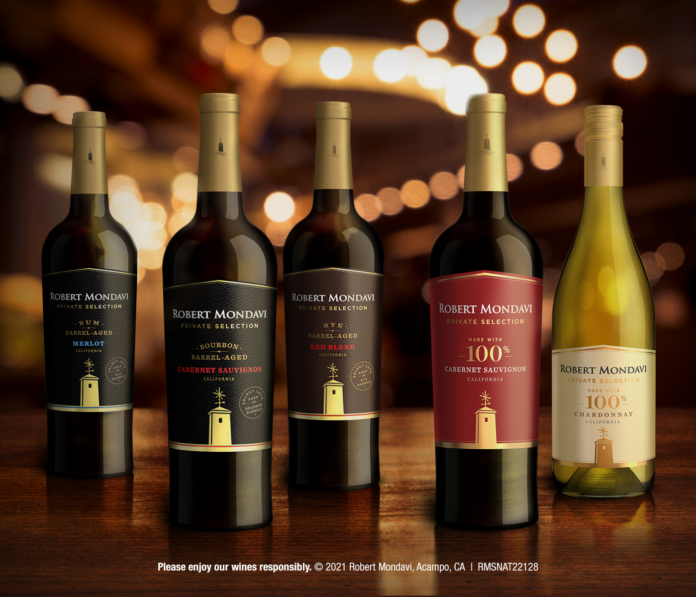The Constellation Brands wine portfolio is looking a little smaller these days. After all, the company sold more than 30 wine brands to E. & J. Gallo Winery in 2021, and in October of 2022, sold six more to The Wine Group.
What’s left? An innovative, higher-end portfolio with distinctive brands and products, the company says. The more-focused set wine brands include Meiomi, Kim Crawford, The Prisoner Wine Company and The Robert Mondavi family of brands, among others.
The shift is a move to focus on consumer preferences, including the premiumization trend, the company has said. And judging by its five Growth Brands Awards in 2023, and being named our Wine Supplier of the Year, the move appears to be paying off.
Rolling Out the Barrels
The company started out in 1945, when 21-year-old Marvin Sands purchased Canandaigua Industries in upstate New York and sold bulk wine in barrels to bottlers in the East. The company, which later changed its name to Canandaigua Wine Co. and went public in 1973, made numerous acquisitions and grew rapidly over the decades.
By 1997 the company had reached $1.1 billion in sales. That year it became known as Canandaigua Brands, parent company of Canandaigua Wine Company and Barton (which it acquired in 1993). It changed its name to Constellation Brands in 2000 to better reflect its broad range of brands across wine, spirits and beer.
Today, Constellation Brands, with locations in Victor, NY, and San Francisco, is also known for its Modelo Mexican beer brands, acquired in 2003, and spirits such as Svedka vodka (bought in 2007), Casa Noble tequila (acquired in 2014), and High West whiskey (purchased in 2016), among others. But wine remains a key part of its business.
Significant Wine Acquisitions
Constellation added Robert Mondavi and Kim Crawford to its portfolio in 2003. Kim Crawford, launched in 1996, helped put New Zealand sauvignon blanc on the map for many Americans.
The brand, which produces a number of other white and red wines, rolled out a rosé in 2017, a prosecco in 2022, as well as ready-to-drink and canned wine products. Kim Crawford sold more than 1.8 million nine-liter cases in 2022.
Meiomi, a luxury wine brand that Constellation acquired in 2015, also sold more than 1.8 million nine-liter cases in 2022 — a 7% increase over 2021. The wine is the leading ultra-premium wine brand priced $15 and above. Billy Lagor, senior vice president, brand management for Constellation’s Wind & Spirits division, credits Meiomi’s success in part to the flavor, balance and approachability of the wines.
Constellation acquired The Prisoner Wine Company’s portfolio of brands in 2016. The deal further strengthened the company’s position at the high-end of the wine category, and The Prisoner has been raking in the Growth Brands Awards: The Rising Star winner increased nearly 8% in 2022.
An offshoot of The Prisoner, Unshackled launched in winter 2020 — just before the start of the pandemic. The endorsement of The Prisoner helped encourage people to try the brand in those early days, says Bukola Ekundayo, vice president and general manager of The Prisoner Wine Company. Unshackled, a Rising Star brand, grew nearly 26% in 2022.
Another one of Constellation’s Rising Stars is Harvey & Harriet. The brand, which retails for about $30 per 750-ml. bottle, launched in 2019 as a lower-price option to the core line of Booker Vineyard, acquired by Constellation Brands in 2021. Harvey & Harriet saw an 87.4% increase in 2022.
Constellation’s revamped portfolio appears to be well positioned to appeal to wine drinkers today, and likely the next generation. That means expect to see more Growth Brands Awards — and entrants into our Hall of Fame — from the company.
Melissa Dowling is editor of Cheers magazine, our on-premise sister publication. Contact her at mdowling@epgmediallc.com, and read her recent piece, The 2023 Wine Growth Brands Awards: The Top Bottles.






